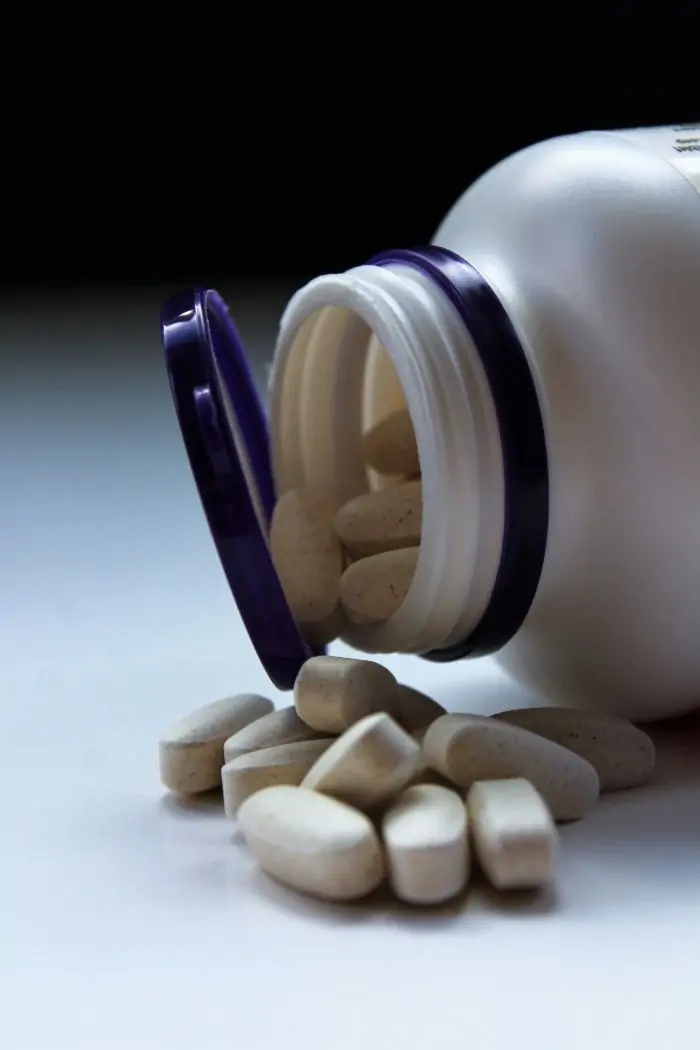Have you ever faced difficulty in having or keeping an erection? If yes, you should know first that you are not alone. And, this is not always an abnormality.
But you need to know the exact reason behind the disorder. Men may occasionally experience the inability, but when it occurs frequently, one needs to pay attention. When a man finds it difficult to have a firm erection for more than half the time, it’s time to talk to your doctor about erectile dysfunction.
Erectile dysfunction (ED) is a known erectile issue impacting millions of men across the world. ED is defined as the inability to attain and/or sustain an erection that is needed for engaging in healthy sexual activity. ED can have a significant impact on a man’s emotional well-being, self-esteem, and intimate relationships. Many assume that ED is only a concern for older men; however, studies show that men of any age can experience ED, even as young as their 20s or 30s in some cases.
Occasional difficulty with erections is very common; ED can occur on a persistent basis and may highlight an underlying health concern like cardiovascular disease, diabetes, and or hormonal imbalance. Therefore, ED is more than just a sexual concern; it is often a signal for internal health issues. Early identification and treatment can be beneficial for both sexual health and overall health.
Over the last many decades, treatment options for ED have grown tremendously, such as: oral medications, hormonal therapy, and various counseling services to help treatment options. With several treatment options currently available, the most critical aspect of an effective treatment plan for ED continues to be identifying the underlying cause of the issue,
instead of just masking the symptom temporarily to resolve the problems of ED.
The blog explores the hidden triggers behind ED, ranging from physical and hormonal factors to psychological and lifestyle aspects. The blog also talks about diagnostic measures, treatment strategies, and prevention methods to help men restore their sexual health safely and effectively. At Buy Steroids, order potent ED medicines online for an effective cure under a doctor’s prescription. The medication include Cenforce, Vidalista, Avaforce, Cobra, Dapoforce, Fildena, Extra Super P Force, Hiforce, Kamagra, Tadaga, Tadagra, Tadalista, Tadarise, Tastylia, Viagra, among others.
What Is Erectile Dysfunction?
Erectile dysfunction happens due to the persistent inability to achieve or maintain an erection sufficient for sexual performance. While occasional disorder is absolutely normal, chronic ED often indicates latent health issues.
What Are the types of Erectile Dysfunction?
Primary ED refers to when a man has constant difficulty reaching or maintaining an erection. This is uncommon and is usually associated with congenital conditions or a physical neurological disorder.
Secondary ED is more common than primary ED. In secondary ED, there is an erectile dysfunction diagnosis, but the cause is entirely different. Erectile dysfunction can come from physical, hormonal, psychological, or lifestyle issues.
How Erections Work
An erection is a complicated physiological and psychological process that involves the coordinated effort of several systems. The nervous system is primarily responsible for transmitting signals from the brain and spinal cord to the nerves in the penis, and begins the response. After activation, the blood vessels dilate, allowing more blood to flow into the erectile tissue, causing the penis to become rigid. Hormones, particularly testosterone, regulate sexual desire and help mediate the necessary mechanisms for an erection. Psychological factors, including emotional state, mental stimulation, and the absence of stress, are also important, as they are involved in both hormone release and neural activation.
When any system is disrupted, it may trigger ED. Often, there is more than one cause concurrently, making the assessment and treatment of ED complicated.
What Causes Erectile Dysfunction?
Vascular and Cardiovascular Causes
Continuous blood flow to the penis provides a firm erection. This requires adequate arterial inflow and insufficient venous outflow in order to achieve and maintain an erection.
Common Cardiovascular Causes
- Atherosclerosis: Plaque builds up in the arteries, resulting in less blood flow to the penis.
- High blood pressure (Hypertension): Damages arteries and reduces elasticity.
- High cholesterol can cause arterial blockages and impair blood flow.
- Obesity: Increases vascular inflammation and risk of arterial disease.
Link Between ED and Cardiac Health
ED is often the first sign of cardiovascular disease. ED also worsens with cardiovascular disease. For men who have chronic ED, it is also important to undergo cardiovascular evaluation because early detection of cardiovascular disease may help prevent more serious events like a heart attack or stroke.
Management and Prevention
- Regular cardiovascular exercise (walking, cycling, swimming).
- Heart-healthy diets are rich in fruits, vegetables, whole grains, and omega-3 fatty acids.
- Avoid smoking and limit alcohol.
- Regular examinations for blood pressure, cholesterol, and blood sugar.
Addressing vascular health will not only improve erectile function but also enhance longevity and quality of life.
Endocrine and Hormonal Factors
Hormones are essential to sexual health. Testosterone, the primary male hormone, regulates libido, energy, and erectile function. Hormonal imbalances and deficiencies often manifest as ED.
Hormonal causes
- Low testosterone (hypogonadism) – reduces libido and sexual function.
- Diabetes can affect both nerve function and vascular health.
- Thyroid disorders – decrease libido and enhance sexual function if Hasimoto’s disease.
- Obesity/metabolic syndrome contributes to insulin resistance and decreases testosterone levels.
Diagnosis and management
- Blood tests to check the levels of testosterone, thyroid hormones, and blood sugar
- Lifestyle modifications (such as exercise and weight loss) will naturally improve hormone levels.
- Hormone replacement therapy under a physician’s supervision, if values are confirmed low.
It is critical to treat the hormonal cause(s) because if you only address the physical symptoms without treating the hormonal cause (s), the physical symptoms may be only temporary.
Neurological and Injury-Related Causes
The nervous system plays the key role in having and maintaining an erection, with signals originating in the brain and spinal cord prompting blood flow to the penis. Disruptions to these pathways can result in erection difficulties.
- Neurological Causes
- Parkinson’s Disease
- Multiple Sclerosis (MS)
- Spinal cord injury
- Stroke
Surgical interventions in the pelvic region, for example, prostate, bladder, or rectal surgeries
- Modality of Management
- Medicines to improve blood flow or enable a smooth erection
- Penile implant in the most severe cases
- Rehabilitation therapies to restore nerve function when possible
- Mechanical devices (e.g., vacuum erection pumps)
Men with neurological ED often require a combination of medical, mechanical, and therapeutic interventions to achieve satisfactory sexual function.
Medication, Substance Use, & Lifestyle Factors
Some medications, illicit drugs, and lifestyle factors can contribute to ED.
- Erectile Dysfunction Related to Medications
- Beta-blockers are used for hypertension
- Certain antidepressants (e.g., SSRIs, SNRIs)
- Anti-anxiety medications
- Some antihistamines, diuretics
Lifestyle / Substance factors

- Smoking: smoke consumption causes damage to the blood vessels and decreases the delivery of blood to the penis.
- Drinking too much alcohol affects nerve function and reduces testosterone levels.
- Recreational drugs: Interfere with vascular function and nerve function.
- A sedentary lifestyle causes obesity, diabetes, and cardiovascular conditions.
Recommendations
- If ED develops after starting a new prescription, speak with your provider about possible side effects.
- Limit drinking too much alcohol or recreational drugs.
- Engage in a clearly defined, active lifestyle including regular exercise that supports vascular and sexual health.
Lifestyle changes, combined with evaluation by a medical provider, can often lead to considerable improvements in erectile function.
Psychological and Emotional Causes
There is a deeper connection between mental stability and sexual function. Stress, anxiety, or depression affects the complex physiological processes related to getting an erection.
Some common psychological contributions include:

Common Psychological Contributors:
- Performance anxiety
- Stress related to work or finances
- Depression or chronic mental health issues
- Clashes and disputes in a relationship
Even if there is a physical cause, psychological issues can worsen ED. Stress hormones like cortisol can also impair erectile function.
Management Strategies:
- Cognitive Behavioral Therapy (CBT) to treat anxiety and negative thinking
- Mindfulness and relaxation techniques for stress reduction
- Couples therapy to create a more communicative and intimate relationship
Using psychological support in conjunction with medical treatment is a well-rounded way to manage ED.
Age and Natural Changes Over Time
While it would be inaccurate to say that aging leads to erectile dysfunction (ED), we frequently observe men developing ED in association with increasing age. With aging, men typically move closer to the higher prevalence of ED, meaning that men are generally at increased risk for ED as age advances. There are three different reasons for this – first is the issue of lost arterial elasticity; the vessels become progressively less elastic with age, resulting in diminished blood circulation to the penis during erectile function, ultimately affecting the ability to initiate or sustain an erection. Second is the issue of less testosterone; as men reach middle age and beyond, testosterone production usually decreases, resulting in diminished sexual desire and/or a problem with ED. Finally, chronic medical conditions (e.g., diabetes, hypertension, and/or cardiovascular disease) are more prevalent with aging and affect either blood flow/or nerve function, which can elevate the likelihood of developing ED.
To promote sexual health, men should avoid viewing aging as a barrier to sexual health.
Older men can help manage their sexual health by:
- Controlling their chronic health conditions
- Leading a healthy lifestyle (regular physical activity, healthy diet, not smoking, and not drinking excessively), and
- Knowing when to seek medical treatment or mental health treatment.
Further Reasons behind ED
According to the Urology Care Foundation, men can maintain a healthy sex life into their 80s. Remember, ED is a complex condition, and many factors can contribute.
Diabetes
The majority of men with diabetes will experience erectile dysfunction (ED) on a regular basis. When blood sugar levels are out of control, blood vessels and nerves can be damaged. If diabetes is present along with increased weight and high blood pressure, the chances of ED in men are increased.
Obstructive Sleep Apnea
Obstructive sleep apnea is a sleep-breathing disorder in which a person has difficulty breathing while asleep, experiences fragmented sleep until they fall asleep again, and so on. This sleep disorder will affect sleep quality, leading to medical complications. This could be a major contributing factor to ED. Men recovering from sleep apnea, with the use of medication, can recover quickly after they fall asleep.
Lack of Proper Activity

A prospective study provides evidence that physical inactivity is an important risk factor contributing to the onset of ED. If you find that you don’t have daily activities in your life, you can start by taking a walk.
Processed Food and Meat
According to studies, men who eat processed food and meat (red meat) in their daily diet are more likely to develop ED. An optimal diet for men suffering from ED is based on a diet without meat or processed food.
Diagnosis of Erectile Dysfunction
A proper diagnosis allows for accurate treatment. Standard diagnostic steps include:
Medical History: A comprehensive assessment of lifestyle factors, current medications, alcohol or tobacco use, prior medical issues, and sexual history will identify etiological factors. Psychological and relationship factors may also be assessed to find emotional or mental factors related to problems in sexual performance.
Physical Examination: The physician will assess overall health, evaluating, for example, blood pressure, heart rate, and signs of vascular disease. The genitalia will be reviewed for anatomical abnormalities and for secondary sexual characteristics to assess functional capacity for androgen hormone levels.
Blood Tests: Blood tests will check for testosterone, thyroid hormones, cholesterol, and blood sugar levels, and any endocrine and metabolic disorders that may contribute to the worsening of erectile dysfunction.

Imaging: The Penile Doppler ultrasound is one of the most common tests. This test allows evaluation of blood flow and arterial health while assessing venous leakage. This test should help identify if an issue is vascular in nature, related to erectile dysfunction.
Psychological Assessment: Assisting in the identification of an identifiable psychological factor, a screening for anxiety/depression, relationship conflict, and performance anxiety should assist in identifying an identifiable psychological factor. If mental health is determined to be the primary contributor, counseling or therapy might be recommended.
When a proper diagnosis has been established, it allows for differentiation between physical causes, hormonal causes, neurological causes, and psychological causes, ultimately leading to a personalized and appropriate treatment plan.
Treatment Methods
Treatment processes may vary based on the underlying cause and severity of ED.
Prescription Medications (PDE5 Inhibitors and SSRI):
Medications like Sildenafil (Viagra), Tadalafil (Cialis), and Vardenafil (Levitra) work by magnifying the effects of nitric oxide, as well as relaxing penile muscles and increasing blood flow. These medications can be very effective for most men, but they should be managed by a physician, since inappropriate use can cause side effects like headaches and dizziness, or interact with heart medication. The prescription medicines you will find in Buy Steroids include – Cenforce, Vidalista, Avaforce, Abhirise, Cobra, Dapoforce, Duratia, Fildena, Extra Super P Force, Hiforce, Kamagra, Mahagra, Malegra, Manforce, Sildigra, Tadaga, Tadagra, Tadalista, Tadarise, Tastylia, Viagra, Vilitra, among others.
Hormone Therapy
Testosterone replacement therapy may support men with ED, whose testosterone levels are low, and can help restore sexual desire and improve erectile function. The treatment takes testosterone gels, injections, or patches. When one is under hormone therapy, it is important to monitor hormone level, prostate health, and blood counts regularly to reduce the possibility of adverse risks like fluid retention or cardiovascular events.

Lifestyle Changes
Adopting healthy habits is highly effective for addressing erectile dysfunction and overall health. Aerobic exercise, a diet rich in fruits and vegetables, quitting smoking, moderating alcohol intake, and maintaining a healthy weight can increase blood circulation and regulate hormonal balance. Additionally, it’s advised to manage stress levels and maintain a healthy quality and quantity of sleep. Positive changes in lifestyle clearly better sexual performance.
Psychological Support
Emotional instability may cause erectile dysfunction, such as high levels of anxiety, stress, and depression. Psychotherapy plays a critical role in recovery from erectile dysfunction. Therapies such as cognitive-behavioral therapy (CBT), couples therapy, or sex therapy may reduce performance anxiety and restore confidence while building emotional intimacy. Resolving any underlying mental health issues also often leads to greater effectiveness of the medical treatments.
Devices and Surgery:
There are physical and surgical options that are available to men who do not improve with medications and/or other therapies. Vacuum erection devices (VED) often assist in drawing blood into the penis. Another potential option is a penile implant, which is helpful for more severe erectile dysfunction cases that are not correctable by less invasive means. Surgical procedures are only undertaken after extensive non-surgical conservative interventions have been exhausted and are completed under specialist supervision.
There are a variety of interdisciplinary options available, and the best outcome and most enduring process involves a combination of medical therapies, hormone regulation, healthy lifestyle adjustments, and psychological support.
Prevention & Lifestyle Strategies
Preventive strategies are needed to gain a sound sexual health. Potent strategies include:
Regular cardiovascular exercise, including physical activities such as walking, swimming, or biking, improves blood circulation, promotes a healthy heart, and supports vascular health. Prescribed exercises are essential for having and maintaining a firm erection.
Healthy Heart and Balanced Diet: A wholesome diet that includes fruits, vegetables, whole grains, lean protein, and healthful fats supports circulation, enhances hormone balance, and lowers the risk of diabetes and cardiac issues, which significantly contribute to erectile dysfunction.
Keeping a Healthy Weight: Keeping weight within a normal range helps prevent hormonal imbalances, provides stamina, and reduces the risk of vascular problems, which may lead to ED.
Stress Management and Sound Sleep: Chronic stress and sleep loss can alter hormone levels and mental health. Learning relaxation techniques, such as yoga, meditation, or deep breathing, may be beneficial.
Avoiding Smoking and Keeping Alcohol Use Under Control: Both can damage blood vessels and decrease sexual performance.
Constant Health Monitoring: Regular health visits to check blood pressure, cholesterol, and blood sugar will help address concerns before they affect sexual function and lead to ED.
Treating ED not only protects the individual from ED but also influences overall physical, mental, and emotional health.

Final Takeaway
Erectile dysfunction (ED) is a complex health condition that may result from medical, hormonal, neurological, psychological, and lifestyle factors. It’s very important to diagnose the hidden causes before you plan the appropriate treatment.
Prescription medications are beneficial, but should only be taken after consulting with a physician. Frequently, the road to sexual health includes a mix of a medical work-up, lifestyle modification, and psychological support to offer the greatest chance of successful clinical outcomes.
In the end, addressing ED early is not only directed towards sexual function, but it also provides insights into broader health challenges. Proper clinical diagnosis and management can enhance quality of life, emotional well-being, and physical well-being. Get the best quality ED medicines from Buy Steroids with easy delivery options across Australia and the UK.
Disclaimer:
When taken correctly, a prescription ED medication is very effective under the supervision of a health care professional. These medications are prescription-only, and no one should order them from an unverified or unregulated source. Self-medicating can be even more dangerous for men with cardiovascular diseases, diabetes, and other chronic health conditions. There are potential and harmful drug interactions and cardiovascular effects from improper dosing. Patients are strongly advised to consult a licensed health care provider for evaluation, dose recommendations, and monitoring before and during treatment. Medical supervision protects safety, maximizes effectiveness, and protects overall health and well-being. Always follow medical advice to the letter!





